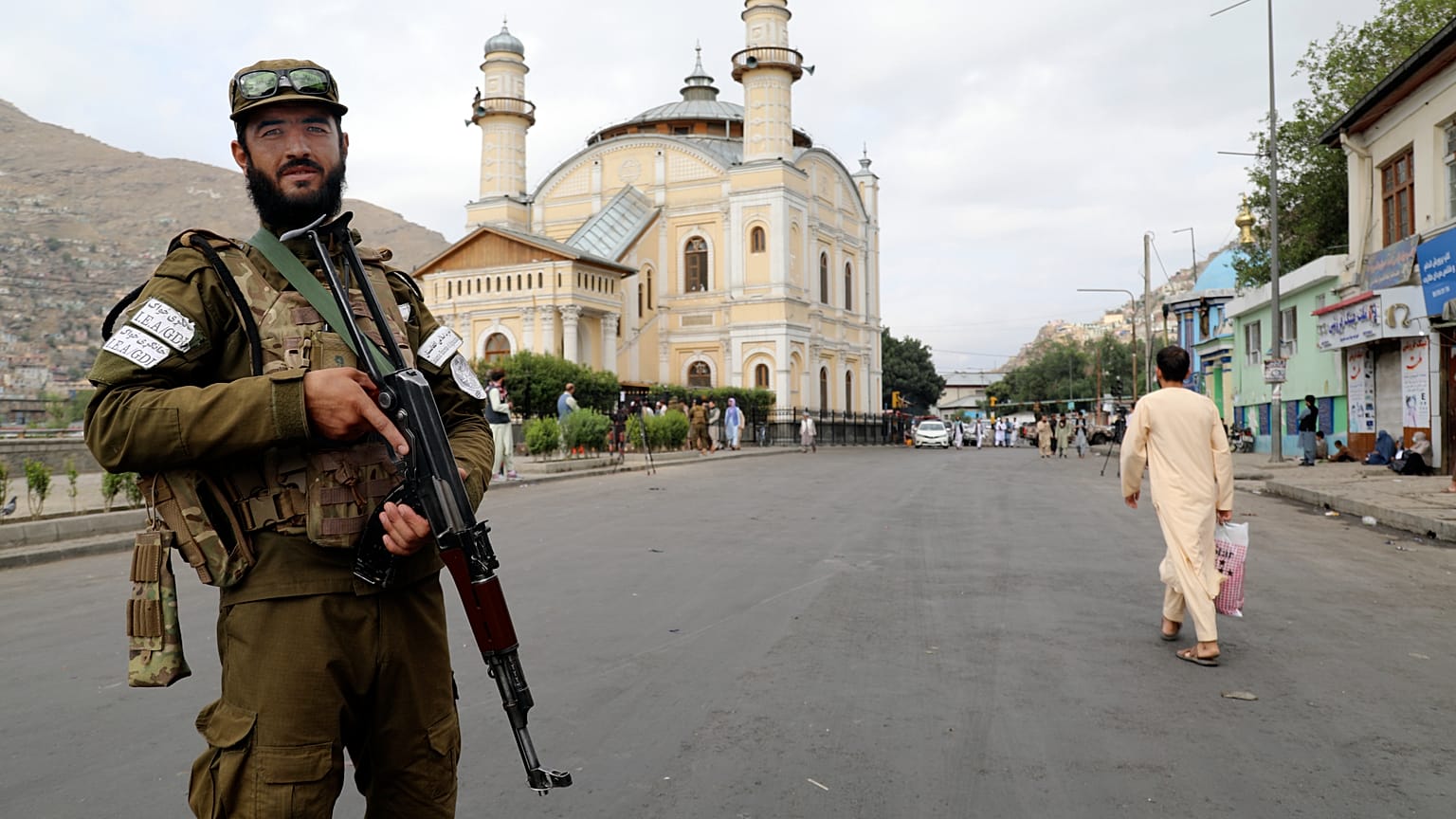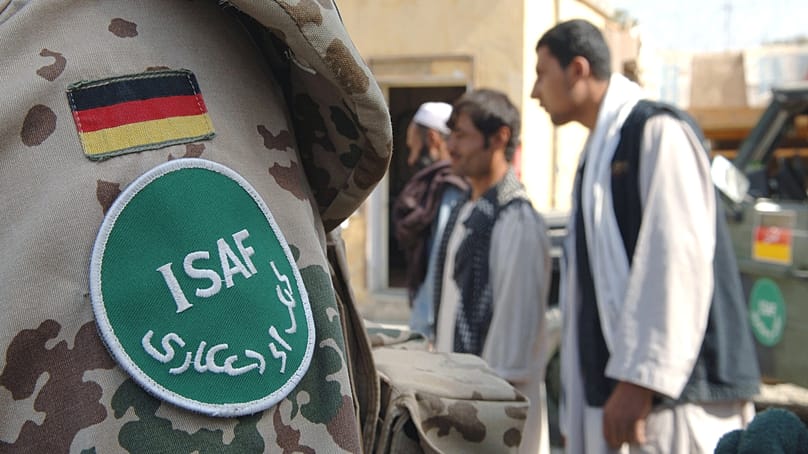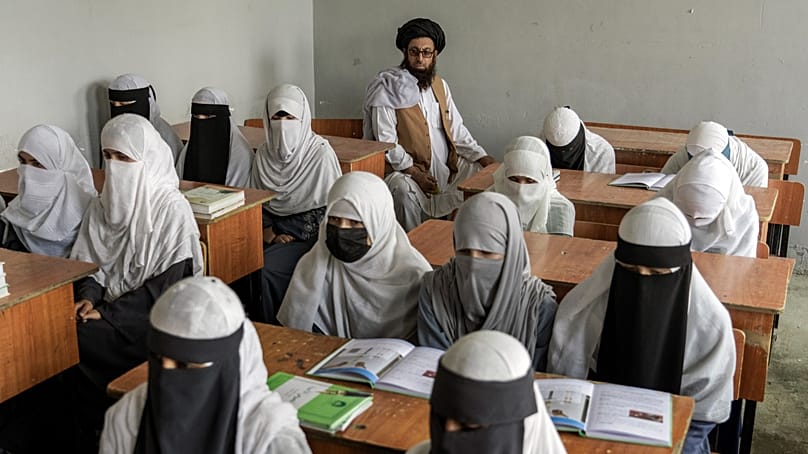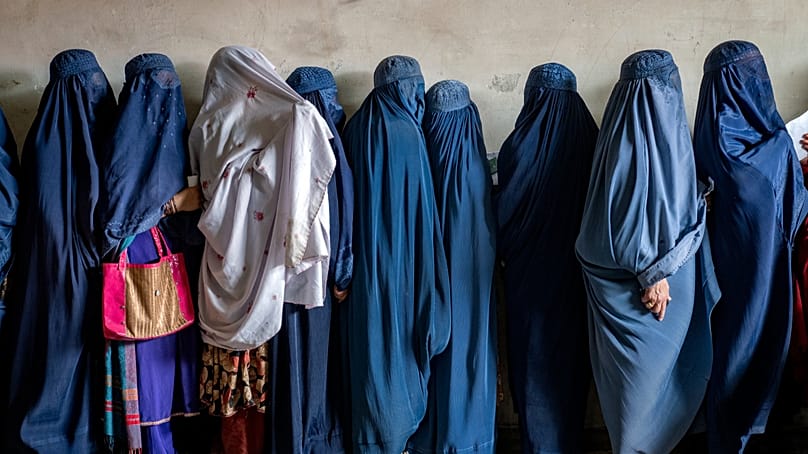Halima worked for the German Air Force in Afghanistan. Today, she lives in fear of the Taliban and has received no response from Berlin.
For five years, Halima* worked in Afghanistan for the German Air Force in the security sector. Now she fears for her life.
During her time with the aerial branch of the Bundeswehr, her personal details and facial biometrics were collected and stored. In 2012, health problems forced her to leave the role. Then the Taliban returned – and alongside them, terror.
Because of her previous work with the German government, she became a target for the hardline Islamist militant group.
The forgotten local hires
As early as 2013, the German government had promised Halima support. She was given an email address at the Foreign Office, which she has tried to contact several times since the troop withdrawal – without success.
For Halima, now 63, the silence has been devastating: despite years of service, she has received no assistance from Germany. Instead, she lives in constant fear for her life and feels left behind, helpless.
According to the Foreign Office, the German government has enabled more than 33,000 particularly vulnerable Afghans to enter Germany in recent years through various admission programmes. In addition, the government’s service provider is in contact with all affected individuals in Afghanistan.
"Where necessary and requested, accommodation, food and essential medical care are provided. The government’s service provider is making every effort to ensure the safety of those concerned," the statement said.
It remains unclear whether local hires who stopped working for the government before 2021 are included in the programme.
Halima still feels both shocked and outraged. Her work with the Air Force, combined with her gender, has made her a target for the Taliban. Without any outside support, she cannot leave the country, as women are not allowed to go out or travel without a male companion.
"I see no hope for life, especially for women. We are completely isolated," Halima told Euronews. For years, she believed in and fought for a just Afghanistan – now she is paying the price with her safety.
Her daughters' lives have also been turned upside down since the US troop withdrawal. Amira (45), Mariam (43) and Yasmin (28)* have all completed higher education – in any other circumstances, the world would be open to them. But under Taliban rule, they cannot pursue their careers. Freedom is a word that no longer applies to them either.
"One of my daughters held a good position at the Appeals Court, another worked in the Ministry of Finance, and the third has just finished her engineering degree," Halima explained.
Because of their past employments, Amira and Mariam are under Taliban surveillance. Whenever they leave the house, they risk having their phones searched by fighters.
Now, the lives of the four women are confined entirely to their home – trapped within their own four walls.
At the end of 2024, the European Court of Justice ruled that women from Afghanistan are at risk of persecution solely because of their gender and are therefore entitled to protection.
Afghan women do not need to prove any additional reasons for fleeing.
Women like Halima and her daughters are thus eligible for protection. However, to access it, they would need to travel to Germany – something that is impossible under Taliban rule.
Isolation, violence and no future
Since the radical Islamist Taliban — who also refer to themselves as the Islamic Emirate of Afghanistan — seized power in August 2021, women and girls in Afghanistan have been systematically shut out of almost all areas of public life.
Girls are banned from school after the sixth grade, and excluded from universities and courses such as medicine or midwifery. Only a small number have access to education through informal or online programmes.
Public spaces, such as parks or sports clubs, are reserved for men. Women are only allowed to leave the house when accompanied by a male relative – even if they need medical care. At the same time, they are only permitted to be treated by female medical staff. But with so few women still working, many patients go without care.
The mental strain of isolation, fear, and a lack of prospects has sparked a severe mental health crisis among Afghan women. Since the Taliban returned to power in August 2021, reports suggest that suicide attempts and suicides, particularly among young people, have risen dramatically.
The Taliban, however, provide no official figures. Media reports, including from the investigative Afghan exile newspaper Etilaat Roz, documented at least 213 suicides between April 2022 and April 2023.
The following year, the Taliban-controlled Ministry of Interior reported 360 cases, indicating a further increase. Euronews could not independently verify the numbers.
Additionally, there are reports that femicides are on the rise.
At the end of 2024, the European Court of Justice ruled that women in Afghanistan face persecution solely because of their gender and are therefore entitled to protection. Afghan women are hence not required to provide any additional grounds for asylum.
*The names of Afghan women mentioned in the article have been changed for safety reasons.



















